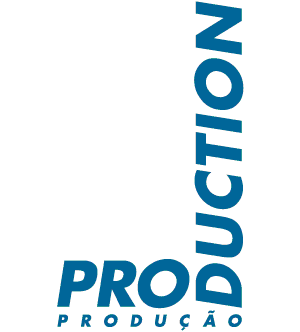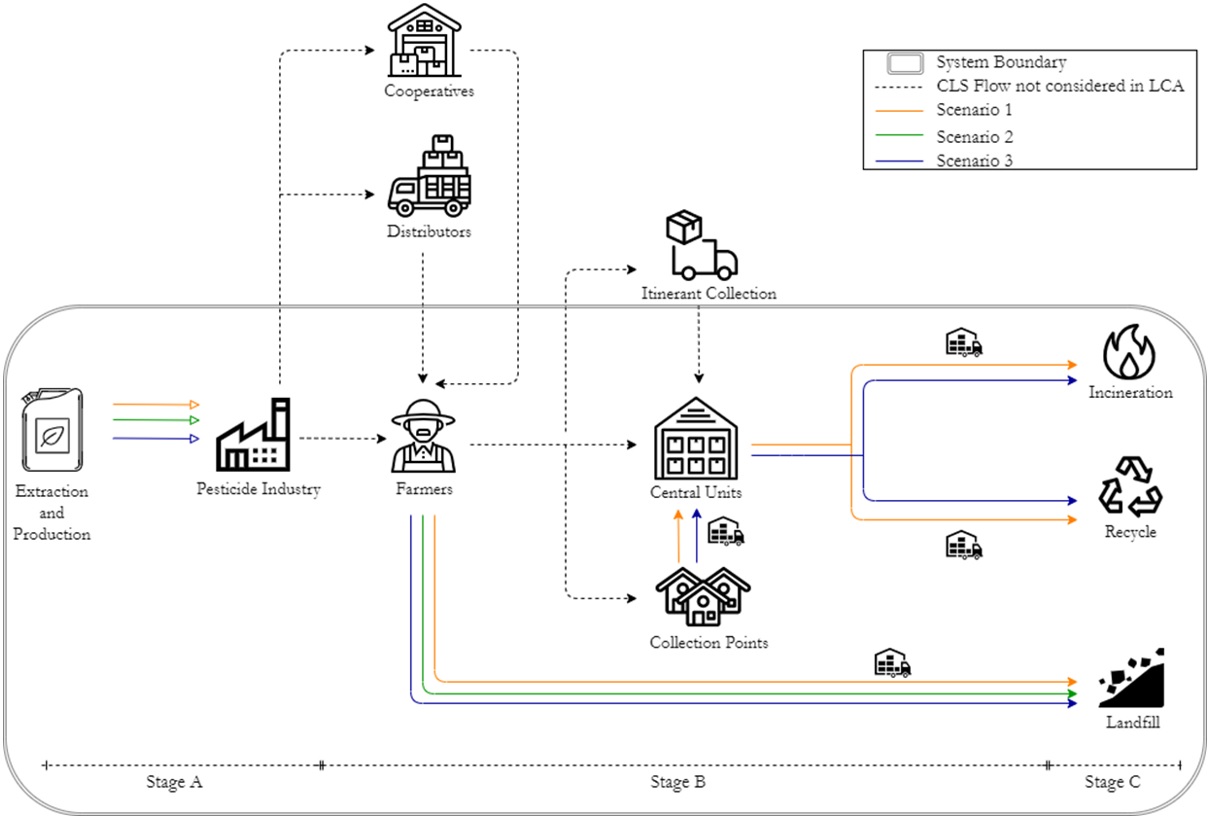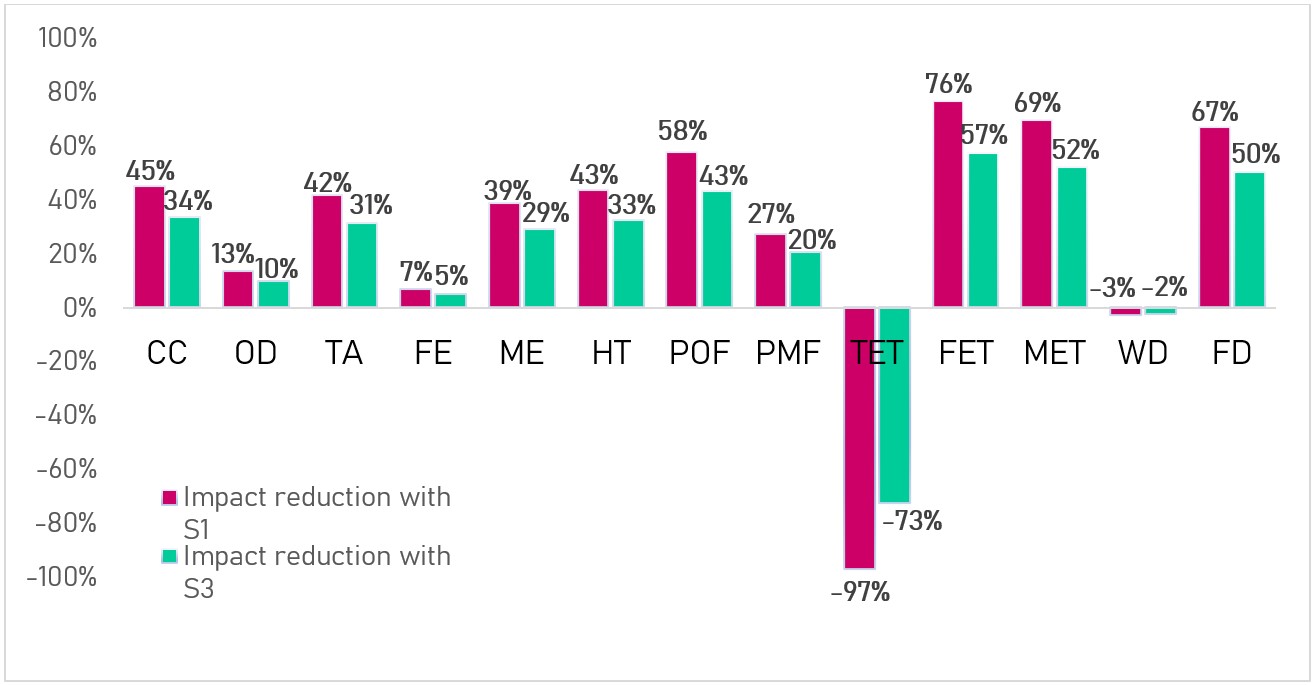Abstract
Paper aims
To define and evaluate the environmental performance of the implementation of reverse logistics (RL) for empty pesticide plastic containers (EPPC) in Brazil through the Campo Limpo System (CLS).
Originality
Discussion about the implementation of RL for the development of sustainable systems, through the identification of environmental impacts associated with RL of EPPC by means of Life Cycle Assessment (LCA).
Research method
CLS is described and used to quantify the potential environmental impacts of the RL chain of EPPC waste management by using the LCA methodology. The analysis comprehends the situations prior and post implementation of the CLS, it takes into account container manufacturing, transportation and end-of-life.
Main findings
Implementation of the CLS resulted in a reduction in nine assessed environmental impacts categories, ranging from a reduction of 79% to 26% in potential impacts. The stage leading to the largest contribution to environmental impacts is the manufacturing of EPPC. For end-of-life options, recycling proved to be the best option to lower environmental impacts.
Implications for theory and practice
Results show that the public policy was environmentally effective given that current activities in EPPC management led to lower environmental impacts enabling the development of a sustainable supply chain.
Keywords
Agricultural plastic waste; Packaging waste management; Waste recovery; End of life; Shared responsibility. Environmental management

 Thumbnail
Thumbnail
 Thumbnail
Thumbnail
 Thumbnail
Thumbnail


